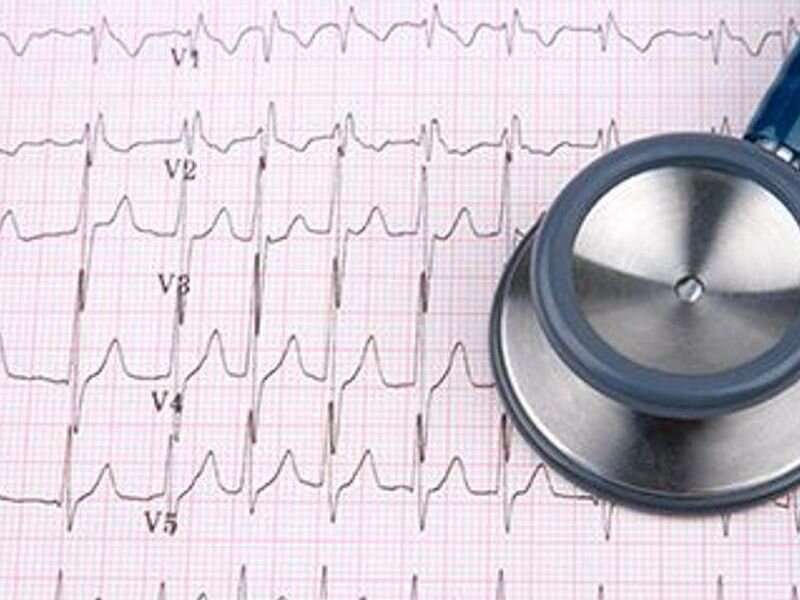No evidence of malignant, sustained arrhythmias seen after COVID-19

(HealthDay)—For outpatients after a positive COVID-19 diagnosis, there is no evidence of malignant or sustained arrhythmias, according to a study published online Jan. 20 in Open Heart.
Thomas A. Dewland, M.D., from the University of California San Francisco, and colleagues examined the prevalence of arrhythmia among outpatients after a COVID-19 diagnosis. Fifty-one individuals underwent 14-day ambulatory electrocardiographic monitoring at a median of 75 days after a positive COVID-19 test.
The researchers found that none of the participants exhibited atrial fibrillation, atrial flutter, sustained supraventricular tachycardia, sustained ventricular tachycardia, or infranodal atrioventricular block. Ninety-six percent of participants had an ectopic burden of <1 percent; one had a supraventricular ectopic burden of 2.8 percent; and one had a ventricular ectopic burden of 15.4 percent. Ninety-two percent of participants triggered their monitor for palpitation symptoms; of these triggers, 78 percent were for sinus rhythm or sinus tachycardia.
"Although these findings cannot exclude the possibility of serious arrhythmia in selected individuals, they do not support a strong or widespread proarrhythmic effect of COVID-19 infection after resolution of acute illness," the authors write.
One author disclosed financial ties to Element Science and iRhythm Technologies.
More information: Abstract/Full Text
Copyright © 2021 HealthDay. All rights reserved.




















